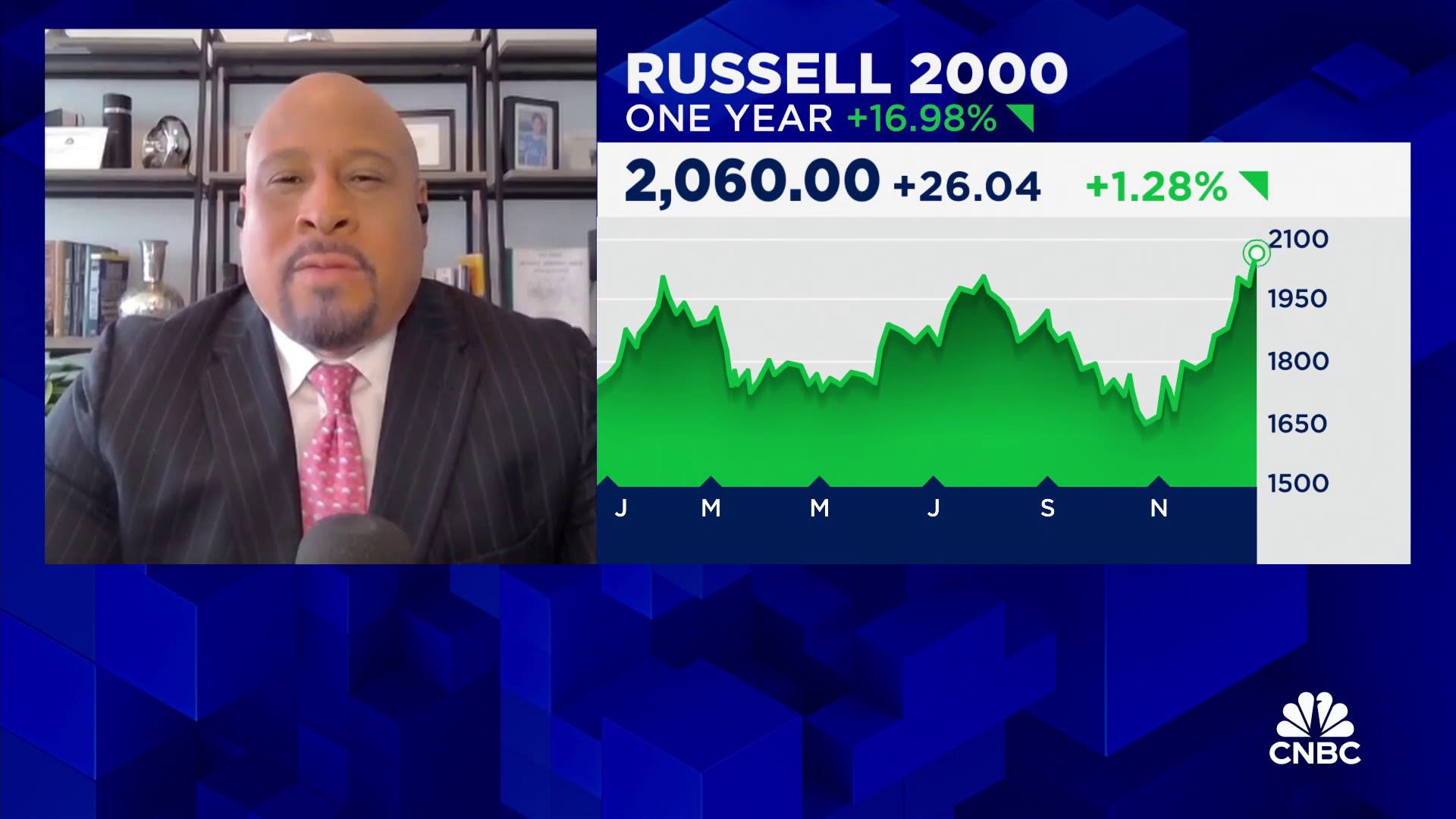Rear view of woman sitting on top of mountain against cloudy sky during sunrise.
Simonkr | E+ | Getty Images
It was a very good year for the stock market.
The benchmark S&P 500 ended the year with a 24.2% gain, the Dow Jones Industrial Average rose more than a 13% this year and and the Nasdaq soared 43%.
An investor who had $500,000 in the S&P 500 index around 12 months ago, would have roughly $630,000 now, according to an analysis by Morningstar Direct.
“It is exciting to see healthy, positive returns,” said certified financial planner Marguerita Cheng, the CEO of Blue Ocean Global Wealth.
What moves should investors make when the market is soaring? Here’s some advice from Cheng and other members of CNBC’s Advisor Council.
‘Don’t chase the market’
Although many investors are seeing their portfolios at all-time highs, they should typically avoid cashing out because of the rally, Cheng said.
“I advise clients to remember that the time they are in the market is more important than trying to time the market,” Cheng said.
Indeed, over the last 20 or so years, the S&P 500 produced an average annual return of around 6%. But if you missed the 20 best days in the market over that time span by trying to time things to your advantage, your return would shrivel to 0.1%, according to an analysis by Charles Schwab.
“The market keeps going up, so even though it’s at a high, it might be even higher in the future,” said CFP Sophia Bera Daigle, founder of Gen Y Planning in Austin, Texas.
Yet the recent rally doesn’t mean you should suddenly pour more money into your investments, either, said Ivory Johnson, a CFP and founder of Delancey Wealth Management in Washington, D.C.
“Don’t chase the market,” Johnson said. “Often times retail investors get excessively bullish after the move has already happened, and turn a win into a loss.”

Afraid that the good times will give way to a recession? It may be helpful to zoom out.
Dramatic ups and downs aside, history reveals the market reliably gives more than it takes over long periods.
Between 1900 and 2017, the average annual return on stocks has been around 11%, according to calculations by Steve Hanke, a professor of applied economics at Johns Hopkins University in Baltimore. After adjusting for inflation, that average annual return is still 8%.
Consider rebalancing, risk tolerance
If most of your investments are pinned for retirement, you likely want to stay the course, experts say.
That’s because you’re not supposed to touch that money until your post-working years, which, for most people, is far down the road.
But if you have stocks in a brokerage account that you’ve been holding for over a year, there may be cases where it does make sense to redirect some of your profits, Bera Daigle said.
For example, it can be worth it to do so if you want to pay off debt or don’t have sufficient emergency savings (most advisors recommend salting away three to six months worth of expenses).
More from Personal Finance:
Two alternatives to the $7,500 tax credit for new EVs
Are gas-powered or electric vehicles a better deal? EVs may win out
A tax break up to $3,200 can help heat your home more efficiently
Amid a market rally, investors should typically “execute the same process as you would do when stocks go down,” Johnson said.
“Review your risk tolerance, time horizon and ask if anything has changed,” Johnson said.
It is exciting to see healthy, positive returns.
Marguerita Cheng
CEO of Blue Ocean Global Wealth
Big drops and rises in the market can be a good time to rebalance your portfolio, said CFP Cathy Curtis, founder and CEO of Curtis Financial Planning in Oakland, California.
“It’s quite possible that the rally of the last few months has created an overweight to stocks versus bonds in a person’s portfolio,” Curtis said.
For example, if you want your money allocated 70% to stocks, and 30% to bonds, you may now or at least soon need to sell some stocks and add to your bonds, she added.

